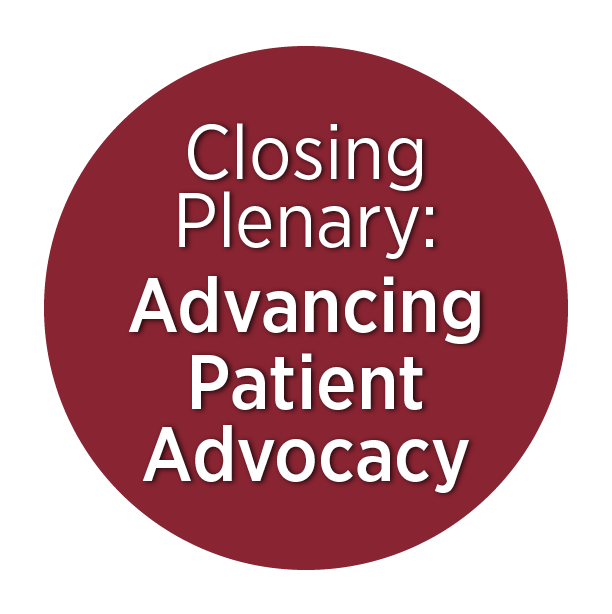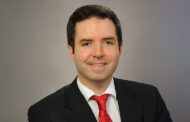
Lung cancer is a global phenomenon, which requires global patient advocacy. Fifty years since its inception, IASLC remains the largest global organization dedicated to the study of lung cancer and to patient advocacy for—and by—patients with lung cancer and their caregivers.
“The IASLC is groundbreaking in its inclusivity of patient advocacy,” said Annabelle Gurwitch, a New York Times bestselling author, former television host, and patient advocate following her diagnosis of stage IV lung cancer in 2020. “This closing plenary will aggregate information from advocates across the globe. The IASLC speaks to the worldwide nature of lung cancer, and this plenary speaks to both the worldwide success of patient advocacy and its challenges.”
Gurwitch will co-chair the closing plenary Breaking Barriers, Building Bridges: Advancing Patient Advocacy Worldwide on Tuesday, September 10, from 16:30-17:30 PDT in Room 20A at the San Diego Convention Center. The plenary will be live streamed for virtual attendees and available on demand for all WCLC 2024 attendees.

16:30 to 17:30 PDT, Tuesday, September 10
Room 20A, San Diego Convention Center
Closing Plenary: Breaking Barriers, Building Bridges: Advancing Patient Advocacy Worldwide
During a special plenary session, experts will emphasize the importance of overcoming barriers in patient advocacy and enhancing the patient-physician partnership.
“We’ll be in discussion with outstanding global leaders including Shani Shilo, founder and CEO of the Israeli Lung Cancer Foundation, who will speak to the progress of the national lung cancer screening initiative her organization is spearheading,” she said.
“Lillian Leigh, who serves on the Advisory Council of Cancer Australia and IASLC’s Global Policy Committee, will address challenges faced by patient advocacy groups in affecting legislative change. Caleb Egwuenu will focus on the particular challenges of reaching cancer patients in Nigeria. We will also benefit from hearing from Yvonne Diaz discuss fundraising efforts for the creation of a tissue bank for EGFR, ALK, and other oncogene cancers that Oncogene Cancer Research—which she co-founded—is conducting, and we’ll all gain insight into how the IASLC can support these efforts.”
Bridging inequities in care is a top priority on Gurwitch’s advocacy to-do list. Care costs remain out of reach for many patients around the world, as are high insurance deductibles and co-pays, and regulatory barriers impede access to care.

Before June 2024, osimertinib was only available through a compassionate access program in New Zealand, Gurwitch noted. Additionally, only one in five Medicaid patients in Alabama have access to biomarker-targeted therapy, even when their cancer has EGFR or ALK biomarkers.
Patients with access to adequate care see a very different future.
“In lung cancer, we are fortunate today,” said Paul Wheatley-Price, MD, BSc, MBChB, former President of Lung Cancer Canada. He is an Associate Professor of Medicine at the University of Ottawa and a medical oncologist at The Ottawa Hospital Cancer Centre, in Ottawa, Canada.
“Fifteen years ago, survival rates were so poor and diagnosis so late there were not many patients who could advocate. The picture is very different today,” said Dr. Wheatley-Price.
The growing success of lung cancer screening, diagnosis, and treatment is creating a growing community of lung cancer survivors who are living longer. Not only do they want to live longer lives, but better ones.
“We increasingly need to recognize that the end goal of successful treatment is not necessarily the traditional scientific goals, how effective a drug is, how safe the side effects are. When we partner with our patients, they give us their goals, ‘I want to live,’ ‘I want to feel well,’ that may have some overlap with traditional goals,” Dr. Wheatley-Price said.
“But sometimes there is a different emphasis, ‘I want to stay independent,’ ‘I still want to travel,’ ‘I want treatments that will allow me to continue working or doing things with my family,’” he continued. “Having a partnership between physicians and patients allows for much more effective patient care, more effective policy development, more effective and more appropriate research priorities. A patient-physician partnership, advocating for my patients, makes me a better doctor, makes me a better person.”





